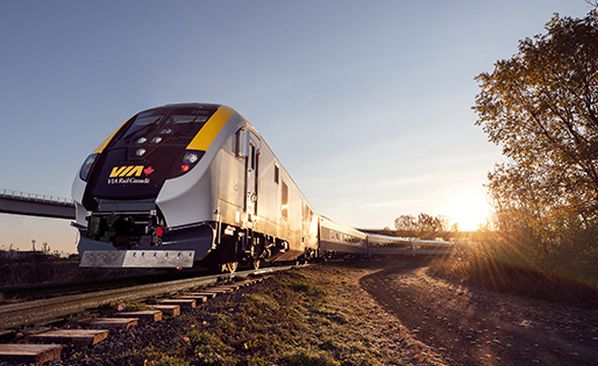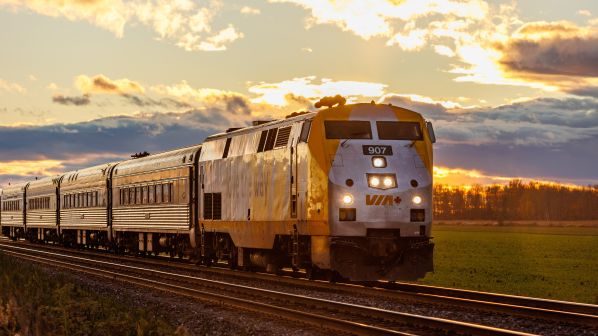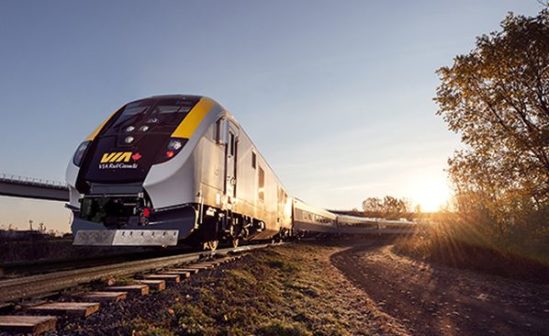CANADA’s minister of transport, Mr Pablo Rodriguez, has announced the launch of the Request for Proposals (RFP) for the High Frequency Rail (HFR) project to provide dedicated infrastructure for passenger services in the Quebec City - Toronto corridor.
This follows the selection in July of three consortia to proceed to the RFP stage. They are:
- Cadence: CDPQ Infra, SNC-Lavalin, Systra Canada, Keolis Canada
- Intercity Rail Developers: Intercity Development Partners, EllisDon Capital, Kilmer Transportation, First Rail Holdings, Jacobs, Hatch, CIMA+, FirstGroup, RATP Dev Canada, Renfe Operadora, and
- QConnexiON Rail Partners: Fengate, John Laing, Bechtel, WSP Canada, German Rail (DB).
Transport Canada says that the RFP stage will run until summer 2024. Following the evaluation period, the government of Canada will select a private developer partner to work with project organisation Via HFR on design and development.
To maximise public benefit and innovation, RFP bidders will be required to develop two solutions, including proposals enabling passenger trains to operate at up to 200km/h.
The second solution must include high-speed segments for higher speeds, which Transport Canda says will enable rigorous assessment of the costs and benefits of high-speed rail on each segment of the Quebec City - Toronto corridor.
As it works to implement what it describes as the largest Canadian infrastructure project in generations, the federal government says that advancing reconciliation with indigenous peoples is a priority, with early engagement already underway.
As part of the RFP process, bidders will be required to set out in detail their plans for indigenous participation in the HFR project and how they would facilitate opportunities for sharing its socio-economic benefits.
Transport Canada also says the competitive procurement process for HFR is being conducted to the highest standards of fairness and transparency. It is overseen by an independent fairness monitor, which acts as an objective, third-party observer to safeguard the integrity of the process.
A robust cost management strategy is also being implemented for every phase of the project. This will include annual cost updates, recurring due diligence reviews, and open book reporting to manage costs and report changes.
The eventual private-sector partner in the HFR project will also be incentivised to innovate and seek cost reduction to improve value for money while protecting the public interest.
The government has allocated $C 400m ($US 293.3m) to Transport Canada and Infrastructure Canada over the two years from 2022-23 to undertake key activities for HFR and undertake the procurement phase.
“More Canadians will choose to travel by rail, because HFR will lead to faster train journeys, more frequent departures and greener travel,” says Rodriguez.
“I look forward to seeing how the teams participating in this process will approach the challenge of connecting communities, honouring indigenous reconciliation, and improving travel in the Quebec City - Toronto corridor.”
“Over the past few months, our government has been working extensively with world-class experts from the private sector to help deliver this major infrastructure project and ensure that Canadians have access to fast and reliable rail service,” says Mr Jean-Yves Duclos, minister of public services and procurement.
“The launch of the RFP marks a critical step in the procurement process and brings us closer to the completion of this important project.”
“This transformative project is about connecting people and places in Canada’s most densely populated corridor,” says Via HFR CEO, Mr Martin Imbleau.
“By moving passenger trains onto their own dedicated tracks, we’ll offer faster, more frequent trains that arrive reliably on time.”
An in-depth feature on the HFR project appeared in the September issue of IRJ.




